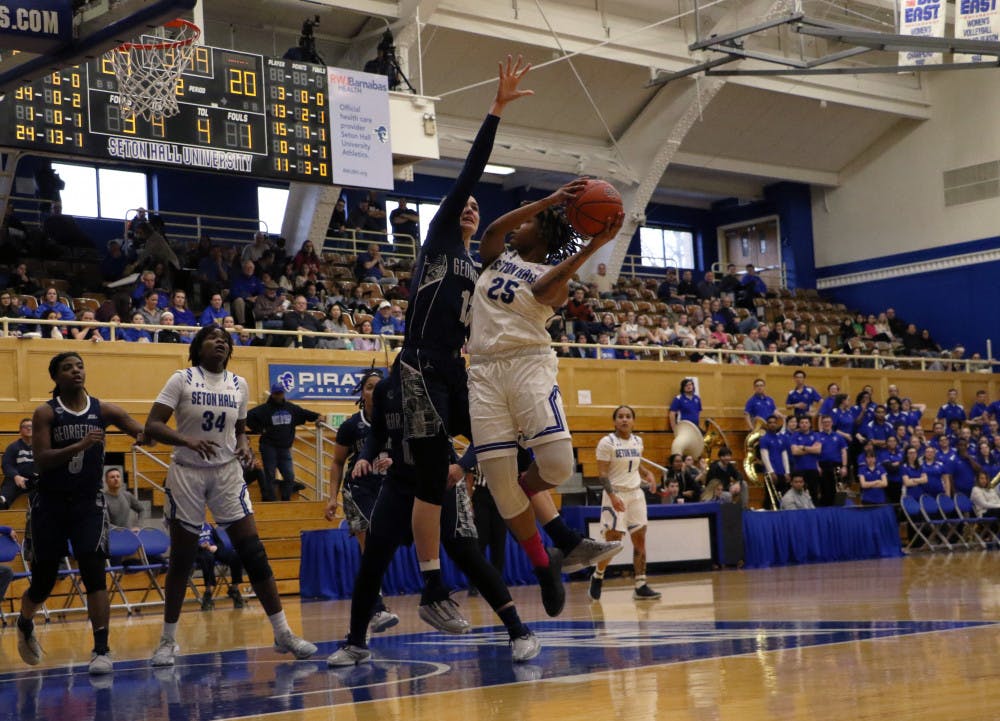During their annual election in May 2010, the Seton Hall faculty chose a new chair to lead the Faculty Senate for the ‘10-'11 academic year.
David P. Beneteau, associate professor of Italian, Department of Languages, Literatures and Cultures, has been a member of the Senate since 2007 and was chosen for the job as main voice of the Senate.
As chair of the Faculty Senate, Beneteau has the tasks of negotiating with the provost, meeting with the president monthly and sitting on key budget committees that make recommendations for the future course and investments of the University.
"The faculty need to be represented on these decision-making groups so that our voice can be heard," Beneteau said.
Beneteau said the Senate is currently looking into two key issues, among others: a revision of the Faculty Guide and the state of academic freedom on campus.
"My long-standing interests are shared governance, ensuring the faculty's voice is important in all areas of decision-making that affect students and academic freedom," Beneteau said. "We need to be guided by our conscience, not fears of taking unpopular positions or upsetting people. That is the basic premise of tenure: you cannot lose your job because of what you think or write."
Beneteau explained how students are directly involved in academic freedom.
"It is your (students') right to hear the debates and to be able to participate in them," Beneteau said. "When a faculty member's right to teach a controversial subject is questioned, this just shows we have more road to travel down this path. Students have a right to know, and they need to exercise that right."
When asked about the Faculty Senate's position on the ongoing presidential search, Beneteau said there is no question that who will be president is the most important decision to be made at the University.
"Universities have become enormously complex enterprises, and to direct an organization this size, good will and character aren't enough. You need years of experience managing higher education," Beneteau said.
Beneteau said the faculty was given a say in the decision-making process in 2009, but the search "failed to yield a qualified candidate."
Beneteau expressed only good thoughts about interim President Gabriel Esteban.
"The Senate has worked well with this administration, both with Dr. Esteban and with the current interim Provost Dr. Robinson," Beneteau said.
"The Senate feels comfortable with this relationship, and I am sure it could work productively with them in the future also. We have lacked stability at Seton Hall. Having a permanent president will help us face the future, which no doubt reserves some surprises as well as enormous challenges."
Beneteau said no one knows where the Board of Regents and Board of Trustees will decide to go from here in terms of the search.
While born in the U.S., Beneteau grew up mostly in Italy, before spending 10 years in French .
"My father was French Canadian, but I have had a multicultural upbringing, so studying Italian in college came naturally and easily," Beneteau said.
Beneteau has a Ph.D from the University of California at Berkeley, with a specialization in medieval Italian literature.
After arriving at Seton Hall in 1992, Beneteau said over the past years he has chaired the Faculty Development Committee of the Senate, the Faculty Guide Committee and served as vice-chair of the Senate under W. King Mott last year.
After becoming an experienced member of the Faculty Senate, Beneteau said it is the Senate's responsibility to represent the faculty on university matters with the administration.
Beneteau not only believes in establishing a union between professors and administration but between professors and students.
"The modern university started in Europe in the 13th century as a union between the students and the teachers," Beneteau said. "That's what ‘university' means, and that model still lives today. So students shouldn't think of ‘the University' as something separate from themselves: you and we, in effect, are the University."
Carolyn Maso can be reached at carolyn.maso@student.shu.edu.





